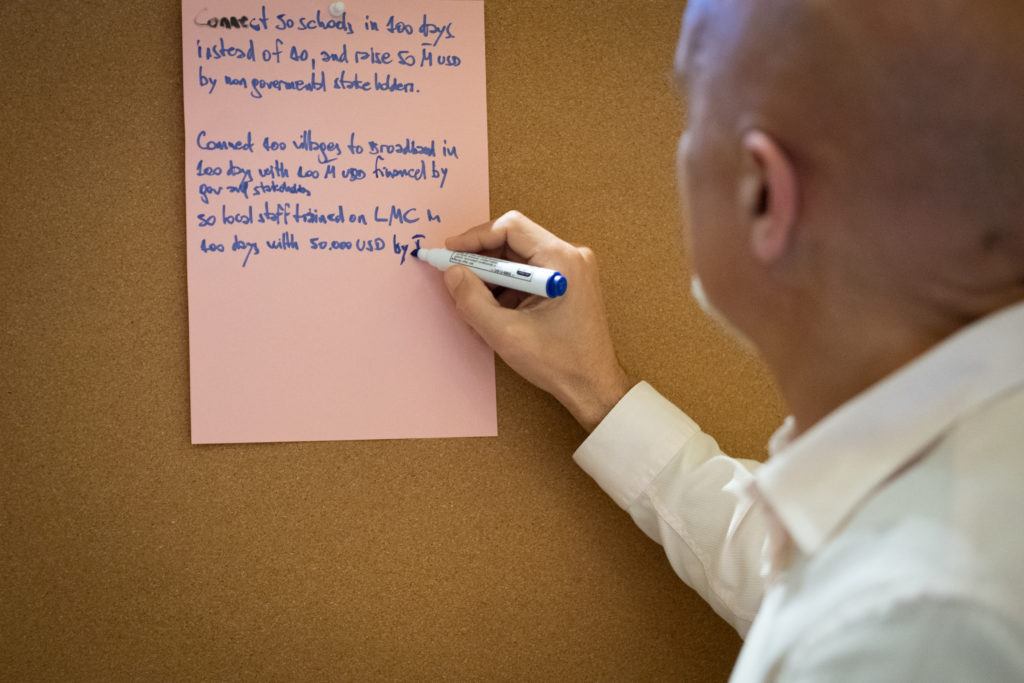I-CoDI Welcomes 18 Practitioners to its Innovation Community
ITU’s International Center of Digital Innovation (I-CoDI) welcomed 18 I-CoDI practitioners to its international network. The new members of the I-CoDI team are recent graduates of the Accelerated Innovation Workshop for Facilitators, which was developed in partnership with the UAE Government, Telecommunications and Digital Government Regulatory Authority (TDRA) and held in Dubai, UAE, from 10 to 15 October. The intensive learning workshop was based on the I-CoDI Playbook, a resource guide and toolkit developed to accelerate action and innovation within multi-stakeholder environments.
What can I-CoDI practitioners do?

The new team members can now put the I-CoDI Playbook into practice. They can structure, catalyze, and mobilize teams and projects to achieve tangible results, innovate, and learn. The workshop laid the groundwork for a common institutional approach to ‘jump-start’ significant change efforts with short-term projects that can engage the creative energy of colleagues and stakeholders at all levels.
How do they work?

The global team has been trained to seek rapid results and achieve ambitious goals in 100 days or less. They will follow a simple, although highly choreographed process in three parts—pre-launch, launch, and implementation—with each phase designed to mitigate risk, build teamwork, and engage a multi-stakeholder team.
Pre-Launch: Creating the Space for Ambition, Engagement, and Ownership

Facilitators dedicate the first part of the journey to creating a dedicated space for experimentation and empowerment with senior leadership. They design a 100-day project framework and establish focus areas of desired support from leadership to mobilize and energize a project team.
Launch: Act, Innovate and Learn

(Mustafa Almahdi suggests areas where innovation may push the project forward.)
With the full support of leadership, the frontline and sponsor teams are united to set the parameters and goals of the 100-day journey and start work. During this phase, the facilitator helps craft outcome statements and plans that the implementation teams believe can be accomplished over the journey. The self-organizing teams are free to try new ideas, innovate and take responsibility for triumphs, challenges, and failures.
Implementation: Focus on Work, Goals, and Teamwork

Throughout the 100-day process, the facilitator focuses on action and pragmatically supporting the teams to achieve their goals. At regular intervals, the teams check work against the established goals and then propose pivots and adjustments to the work plan if needed. At the end of 100 days, each team must declare victory or declare a shortfall and document the lessons learned to report to leadership on next steps, future needs for sustaining and scaling successes.
How does the Playbook fit with the overall I-CoDI approach?

The I-CoDI approach is not business as usual. I-CoDI combines an array of innovation techniques to create and accelerate solutions that advance connectivity and digital transformation. The playbook is one of many tools used to to ideate new solutions to effectively use technology to address global connectivity challenges.
The Accelerated Innovation process is a rapid-result project design tool. Each project is designed and emphasizes pursuing a well-defined, meaningful result while generating new insights about longer-term goals and the skills and confidence to achieve them. The projects are scalable – they can be undertaken individually or in combination according to the demands of the overall strategic goals. They can also be used as building blocks for large-scale and long-term transformation efforts.
I-CoDI now counts two regional hubs and 18 staff members ready and trained to take on connectivity and digital transformation challenges at the country level.